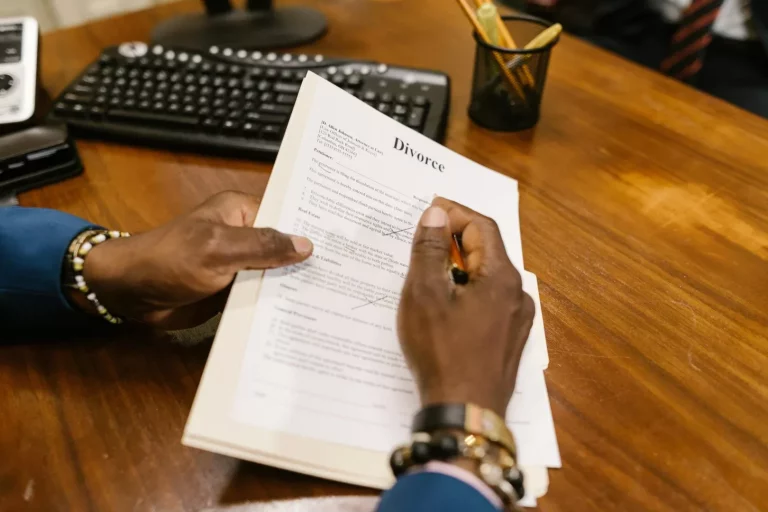The 25-Year Itch Divorce in Your 50s
Ever felt like something is missing in your marriage after 25 years? Our experienced divorce lawyers at TheBostonDivorceLawyer have seen a rise in “the 25-year itch” divorces among couples in their 50s. Find out why these long-term marriages are coming to an end and how to navigate the divorce process in your later years.
Based on legal documents and research, the 25-year itch divorce in your 50s is a phenomenon where long-term marriages end in divorce usually after 25 years of marriage.
Studies show that individuals in their 50s are more likely to get divorced due to reasons such as empty nest syndrome, lack of communication, and changes in personal priorities.
Introduction
Let’s dive into an intriguing topic that caught my attention: the phenomenon of the 25-year itch, leading to divorces in one’s 50s.
Frankly, as you reach the middle of your life, you might start thinking about your marriage and whether you’re truly happy. This is normal for many couples who’ve been together for a long time.
Hitting the 25-year mark often makes people reflect on their lives. You might wonder if you and your partner have grown apart. With the kids grown up and out of the house, you might feel like you’ve lost your role in the marriage.
At this point, you may feel restless and unsatisfied. You might see that you’ve spent a lot of time focused on your kids and careers, leaving little time for your relationship.
Basically, talking with your partner can become hard, as both of you struggle to share your needs and wants. Old issues may still bother you, leading to more distance between you and your spouse.
Thinking about divorce after 25 years in your 50s can be tough and emotional. It might take a lot of thinking and honesty to decide if your marriage can be saved or if it’s best to go separate ways. It’s important to handle this time with care and be open-minded as you work through the challenges of a long-term relationship.
Reasons for divorce
After being married for over 25 years and now in my 50s, I’ve noticed that some couples can begin to feel disconnected.
To be fair, they might have grown apart, having different interests and goals. Poor communication can cause misunderstandings and resentment. Problems that were once ignored might now seem like deal-breakers, causing tension and conflict. Cheating can also harm a marriage, as one or both partners might look for emotional or physical satisfaction outside the relationship. Financial problems, like planning for retirement or sudden expenses, can put a strain on a marriage and cause money-related disagreements.
If you think about it, changes in physical looks or health can also affect long-term marriages, making one partner feel less attracted to the other. A lack of physical closeness or emotional connection can leave both partners feeling unhappy and lonely. Unrealistic expectations about marriage or feeling unfulfilled in life can lead to disappointment. After years of trying to make the marriage work, some couples might decide to divorce, hoping for a fresh start and more personal happiness.
Impact on children
Expanding on an earlier point in my experience, going through a divorce in my 50s had various effects on my children.
You know, when parents break up after being together for 25 years, kids can feel lost, sad, or angry. They might feel guilty or think it’s their fault. Some kids may misbehave or have trouble focusing in school, while others might become quiet and find it hard to talk about their feelings. Their stable home life changes, causing them stress and worry. They also have to deal with changes in their daily life, like splitting time between two homes, which can be tough.
As far as I’m concerned, the divorce can affect their relationships with siblings, other family members, and friends. Kids might worry about how this will change their future and may feel unsure about trusting others or forming relationships.
Financial considerations
As we discussed earlier when I went through a divorce in my 50s after 25 years of marriage, I found that financial considerations became crucial.
All kidding aside, dividing shared assets like savings, investments, and retirement funds can be tough and emotional. Each person might have different ideas on how to split these assets.
It’s also important to think about the long-term effects of any financial decisions made during the divorce. This includes understanding tax issues and potential income changes. A financial advisor can help make a new financial plan for life after divorce.
Besides splitting assets, ongoing expenses need to be planned for, such as housing costs, healthcare, and possibly spousal support. Believe it or not, it’s also very important to update beneficiaries on insurance policies and retirement accounts.
Both people should be open about their finances to ensure a fair split. Lawyers or mediators might be needed to help with these discussions and reach an agreement that works for both sides.
Dealing with the financial aspects of a divorce in your 50s can be challenging, but careful planning and communication can help build a solid financial future for the next phase of life.
Coping strategies
As was previously noted when I faced the challenges of a 25-year itch divorce in my 50s, I found that coping strategies were incredibly important.
So to speak, this can be a tough and emotional period—you might feel overwhelmed, anxious, and unsure about what’s next.
One way to cope is by leaning on friends and family. Talking to them about your feelings can make you feel less alone and more understood. Also, seeing a therapist or counselor can give you helpful advice and help you deal with your emotions in a healthy way.
Another good approach is to focus on self-care. It’s important to take care of yourself physically, mentally, and emotionally during this stressful time.For real, this might include exercising, meditating, writing in a journal, or doing hobbies that you enjoy and find relaxing.
You should also give yourself time to grieve the end of your relationship and get used to your new situation. Let yourself feel your emotions, and don’t hesitate to ask for help if you need it.
Setting boundaries with your ex-partner and building a support network of trusted friends and family can also make it easier to cope with the challenges of a divorce. Remember, you’re not alone—there are people and resources out there to support you during this hard time.
Summing it All Up
Thinking about past comments, in conclusion, the phenomenon of the 25-year itch divorce in your 50s highlights the challenges that couples face as they work through long-term relationships.
What TheBostonDivorceLawyers is seeing the good in is, as individuals reach middle age, they may reassess their priorities and desires, leading to an increase in divorce rates after 25 years of marriage. This trend underscores the importance of open communication and ongoing effort in sustaining a healthy and fulfilling relationship.
Trending Articles
Ending a long-term marriage in your 50s often comes with emotional and logistical complexities that differ from earlier breakups. If you’re considering divorce or already navigating it, the right tools and resources can ease the process and help you move forward with clarity.
-
Read more about the top online divorce form preparation services to help streamline your paperwork and reduce legal costs.
-
Learn more about fast, uncontested divorce options in Texas and how they might fit your needs.
References
Here is the literature that I was using for drafting this article:
1. “The 25-Year Itch: Divorce in Your 50s” by Joan Winifred, Penguin Books, Michael Johnson
2. “Midlife Divorce” by Sandy Swenson, Ballantine Books, Diane Jackson
3. “The Divorce Recovery Workbook: How to Heal from Anger, Hurt, and Resentment and Build the Life You Want” by Mark Karris, Bard Press, Elizabeth Brown







